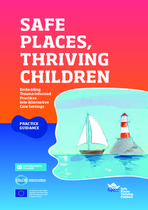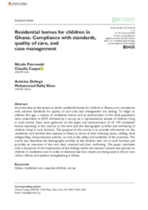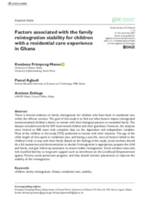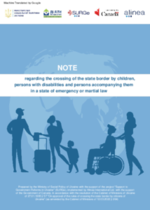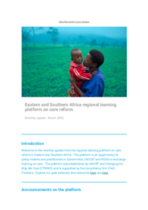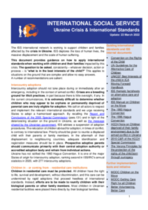Safe Places, Thriving Children: Embedding Trauma-Informed Practices into Alternative Care Settings (Practice Guidance)
The Practice Guidance was developed by CELCIS and SOS Children’s Villages as a resource for participants taking part in the “Safe Places, Thriving Children” training. The purpose of this guidance is to improve understanding and practice in relation to working with children and young adults who live in alternative care settings and who may have experienced trauma.

